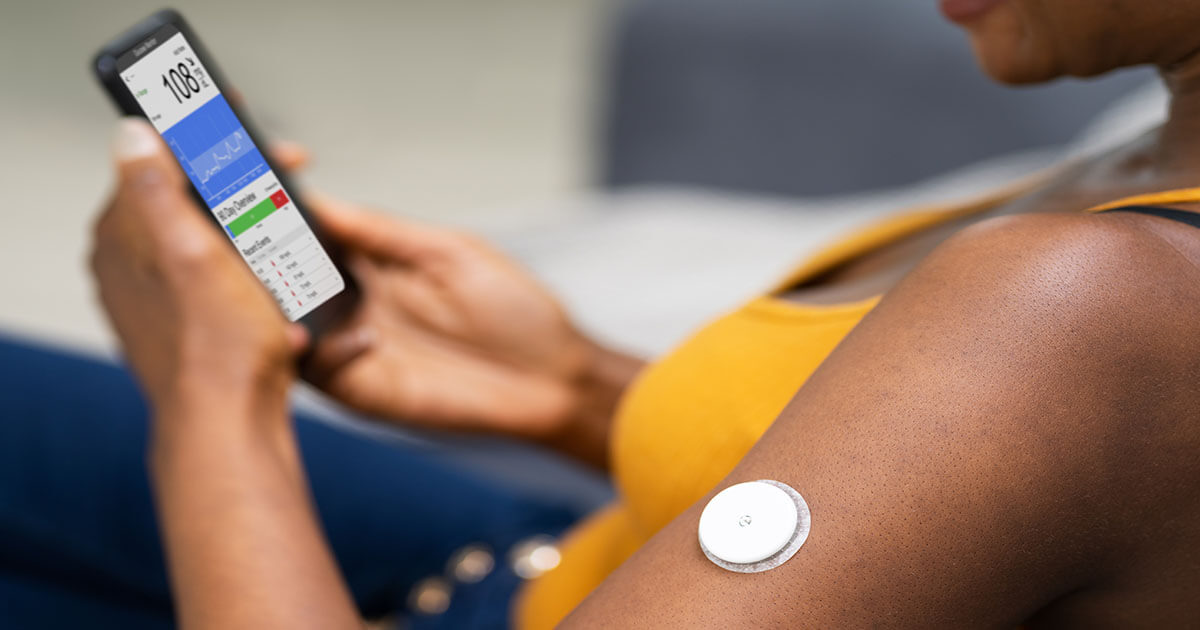The paediatric diabetes network coordinator (PNCo) role was commissioned and developed by NHS Diabetes between July 2010 and June 2012 to support regional delivery of the objectives set by the National Children and Young People (CYP) Diabetes Network (http://bit.ly/1awPUMZ; accessed 21.11.13). The purpose of the role was to develop a local strategy that was aligned with the strategic priorities of the national network and NHS Diabetes. NHS Diabetes conducted case studies to capture and document the experiences and achievements of four PNCos (Richards, 2013) in order to evaluate the role and the perceived impact it had on the networks’ ability to achieve national objectives. This article provides an overview of the main themes that emerged from these case studies and puts forward a case for sustaining the role.
Nine of the 10 regional networks across England employed a PNCo. The North-East region opted for a registry coordinator. The first four PNCos in post were selected to take part in the evaluation. They were interviewed every month for 6 months with the first and last interview being face-to-face and the others conducted by telephone. A 10-question template guided each interview and spontaneous prompts captured further data. The PNCos’ monthly progress reports were used to cross-reference the themes arising from the qualitative thematic analyses of the interviews. A report was produced for all four participating regions, and this was sense-checked by the respective PNCo and verified by the regional network chairs and the NHS Diabetes programme managers. Views from the other regional PNCos and the North-East’s registry coordinator were also gathered via a focus group.
Impact of the PNCo role
All 10 regional paediatric diabetes networks have demonstrated considerable progress towards achieving most, if not all, of the original objectives defined by the national network (Richards, 2013). Although the case study approach does not allow a cause and effect relationship between the PNCo role and the ability of the networks to achieve these objectives to be determined, the evidence suggests the PNCos played a pivotal role in coordinating many of the networks’ projects, some of which may not have been delivered or would have been delayed without the role.
Stakeholder engagement
Networks have the potential to improve services by promoting a whole system approach (Hudson, 2004). Representation from all organisations and professions involved in diabetes services is required in order to achieve this, and engaging these members was one of the key functions of the PNCo role. According to the NHS evaluation (Richards, 2013), the introduction of the coordinator post has had considerable impact on stakeholder engagement in areas such as:
- Increased membership.
- Improved attendance rates at network meetings.
- Greater representation of the multidisciplinary team (MDT) on network boards including consultants, diabetes specialist nurses, dietitians and psychologists.
- Increased representation of other stakeholder groups including commissioners, service users, finance managers, and charities.
Despite these successes, many PNCos reported that further improvement in MDT representation and the establishment of more effective relationships with other key stakeholders, particularly commissioners, business managers and service users, are required. A continuation of the post would ensure these gaps are filled and that established relationships are maintained allowing the networks to remain active and effective.
Commonly reported benefits the PNCo role could provide included:
- Being the first point of contact for each network.
- Acting as a communication link for sharing and disseminating information and resources, ensuring stakeholders are informed and engaged.
- Regular communication with units.
- Developing and maintaining web pages.
- Answering queries or signposting to relevant resources or support services.
- Keeping contact lists up to date.
- Improving service user involvement to allow the views of children and young people to be considered when developing services.
- Maintaining and developing relationships with pharmaceutical companies to secure financial support for meetings and events.
Promoting collaborative working
Members of each paediatric diabetes unit need to work in an interprofessional manner to promote collaborative practice for the networks to function effectively, but it was found that this was not always easy to put in practice. Clinical teams were passionate about improving care for children and young people with diabetes, but many coordinators reported that some individuals or teams were reluctant to work in partnership with other units in the area. The most commonly cited reasons for resistance to collaborative working included:
- Distance (units being too far apart to collaborate).
- Conflict and/or competition between units.
- Perception that differences between the units (e.g. size and patient demographics) rendered collaborative work futile.
- Current or past politics.
- Insecurity or lack of confidence, particularly among smaller paediatric units.
- Personality clashes.
Being able to identify and understand the barriers to partnership working enabled the coordinators to develop strategies to facilitate collaboration including:
- Finding common ground and inviting teams to participate in projects with a common goal.
- Allocating tasks that reflected the skills and needs of the units while reassuring the teams that they each had something to offer and gain from participating in the network.
- Capitalising on the competitive spirit of the units by keeping teams informed of regional and national achievements. Those not participating reportedly began to feel “left behind” leading them to become more engaged in network activities.
- Addressing geographical barriers by booking meetings or events at the most convenient location for the majority, or rotating the location which promoted a sense of fairness as well as ownership and engagement. The frequency and length of meetings were also adapted to maximise attendance rates.
Collaborative working between units is essential for the effective functioning of the networks. The PNCo can act as a communication link and facilitate discussions between units to overcome any potential barriers. Being independent from the units enabled the coordinators to remain removed from internal politics and assess the needs of each paediatric diabetes unit objectively. This autonomy also put the PNCos in a good position to provide strategic direction to the region, ensuring that the units worked together as a network.
Supporting project delivery
Since the introduction of the national network and the PNCo role, regional networks have reportedly adopted a more strategic approach and now operate in a more formal and structured way. The coordinators supported the networks to deliver specific projects in a variety of ways, most commonly by:
- Providing administrative support (booking venues, inviting speakers, setting agendas, taking minutes, and circulating documentation), thereby reducing the burden of clerical duties on clinical staff.
- Establishing and managing teams or profession-specific groups to deliver individual projects.
- Providing drive and momentum for network activities by managing and coordinating the delivery of projects, ensuring discussion points were acted upon and offering additional support.
Sustaining the PNCo role would ensure continuation of this support deemed necessary for the networks to remain active and effective.
National Paediatric Diabetes Audit
One of the greatest achievements of the networks has been the 100% submission rates to the 2010/11 National Paediatric Diabetes Audit (NPDA) in all but one of the former strategic health authority regions (Royal College of Paediatrics and Child Health, 2012). Participation in the audit has more than doubled since the formation of the national network and the introduction of the PNCo role (Figure 1).
Most of the coordinators reported that it was often challenging for many units to submit data for a variety of reasons, including:
- Lack of, or inefficient, IT systems
- Lack of paediatric templates
- Data stored in different databases
- Paper records made data difficult to collect.
Despite these barriers, the PNCos encouraged all units to participate in the NPDA and offered support before and during the submission period. Levels of assistance varied between regions and units, but commonly included:
- Publicising submission dates and giving reminders.
- Answering queries about the submission process.
- Liaising between clinical teams and local IT departments and/or the Royal College of Paediatrics and Child Health NPDA project team to resolve data extraction and submission issues.
- Working with IT teams to improve electronic systems for data collection and extraction.
Participating in the NPDA is one of the criteria for best practice tariff (BPT) and this will inevitably be a big motivating factor for data submission in the future. However, as many of the barriers to submitting data still exist, it is likely that many units will require additional support from the PNCos to meet this tariff requirement.
Best practice tariff
A specific paediatric diabetes tariff has been introduced to improve standards of care for all children and young people with diabetes across the country (Department of Health, 2013). The “all or nothing” tariff became mandatory in April 2013 in order to ensure trusts and commissioners provide sufficient resources to enable paediatric diabetes services to meet the best practice criteria. Receiving payment for providing paediatric diabetes services is now dependent on units achieving all 13 specified standards of care (Randell, 2012).
To ensure each unit that fulfils the best practice criteria receives payment, it is vital commissioners and service managers are supported to understand paediatric diabetes requirements and the new tariff. Most regions encountered challenges in engaging commissioners, and this was made more complicated by NHS reforms and the associated disbanding of primary care trusts. In some areas commissioners did not fully understood the tariff. It is necessary to identify all relevant stakeholders and make sure they understand the practicalities and implications of BPT, and that the PNCo role remains pivotal to coordinating this process.
By establishing the key strengths of each unit and identifying challenges and barriers to achieving BPT criteria, many coordinators have assisted the networks in targeting support to those units that may be unable to meet the required standards. As the tariff is mandatory, it is essential this process continues as well as identifying those units that have met the standards but have not received payment.
One of the criteria for attaining BPT is the active participation in a local paediatric diabetes network, and so there is a financial benefit to continuing and developing the national and regional CYP diabetes networks. Continuation of the PNCo role could contribute to this standard of care by:
- Maintaining relationships with current network members and identifying opportunities to address gaps or further develop membership.
- Providing communication and administrative support allowing the networks to remain operational and productive.
- Providing continuity during times of organisational flux within the NHS.
Regional projects
In addition to the national objectives, each network identified regional priorities and began work on these projects. These included:
- Peer review quality assurance programmes.
- Establishing an out-of-hours service.
- Developing a psychological assessment tool.
- Running efficiency clinics.
- Developing an electronic paediatric template.
- Improving transition services and experiences.
- Local audits.
- Developing patient information in languages other than English.
The PNCos have reportedly been instrumental in managing and delivering many of these projects. Tasks varied between networks and between projects, but commonly included:
- Establishing and managing working groups.
- Liaising or consulting with stakeholders.
- Analysing and reporting data.
- Writing service specifications.
- Negotiating with commissioners.
- Developing business plans.
- Drafting end of year reports.
Balancing needs of the region with national objectives was a challenge for many of the PNCos. Although the coordinators supported the delivery of local projects, they devised ways to make sure the national workstreams remained at the forefront of the network’s activity to reduce national variation in standards of care and clinical outcomes.
Although the networks have achieved so much individually, it is vital the regions continue to work together at a national level and share common goals and objectives to ensure services and outcomes for children and young people with diabetes improve across the county (Campbell and Waldron, 2013).
The future of the PNCo role
The evaluation revealed that the PNCo role has been beneficial for the four regional networks participating in the study. The findings also suggest the PNCo role has become pivotal to effective functioning of the regional networks by acting as a conduit for disseminating and sharing good practice, information, knowledge and resources. It is anticipated that retaining this role will help maintain the momentum of the regional and national networks to help achieve the vision of the National CYP Diabetes Network – to reduce variation of care and deliver better outcomes for children and young people with diabetes, their families and carers, no matter where they live in England.
As a result of the evaluation, NHS Diabetes recommended the PNCo role should be retained. However, the organisation – which was incorporated into NHS Improving Quality in April 2013 – is no longer in a position to continue funding the post and this will need to be determined by each regional network. With the implementation of the “all or nothing” BPT, it is hoped that each paediatric diabetes network will have the financial ability and willingness to contribute to the maintenance of this valuable resource.
Disclosure
Louise Richards was commissioned by NHS Diabetes to undertake this work as an independent contractor.
Acknowledgement
The authors thank Chantelle Bailey, Research and Evaluation Officer at NHS Diabetes, who developed the original methodology and carried out the East of England case study.





NHSEI National Clinical Lead for Diabetes in Children and Young People, Fulya Mehta, outlines the areas of focus for improving paediatric diabetes care.
16 Nov 2022